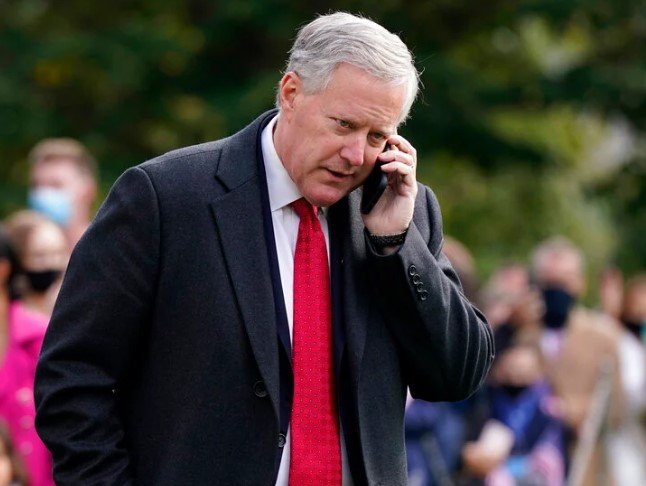The U.S. Supreme Court rejected Mark Meadows’ plea to transfer his Georgia election-related criminal case to federal court, a decision that blocks the former White House chief of staff from seeking immunity under federal jurisdiction. Meadows, a former congressman and a close Trump ally, faces racketeering and other charges linked to attempts to overturn the 2020 election results in Georgia. He has pleaded not guilty, maintaining his actions were part of his duties as a federal official.
Meadows’ Push for Federal Jurisdiction and Immunity
Meadows argued that by moving his case to federal court, he could invoke immunity based on his role within the federal government. His legal team contended that actions taken in support of Trump’s efforts to challenge Georgia’s election results fell within the scope of his official duties. George Terwilliger III, Meadows’ attorney, expressed disappointment in the ruling but affirmed his intent to continue fighting the charges in state court. He underscored Meadows’ belief in the Supremacy Clause, asserting that “constitutional immunity” would ultimately lead to his exoneration.
Terwilliger voiced concerns over the implications of the decision, suggesting it puts former federal officials at risk of “politically motivated” prosecutions by state authorities, stripping them of access to federal courts. The Supreme Court’s refusal to hear the case means that Meadows will have to continue his legal defense in Georgia’s state courts, where he has yet to secure immunity for his involvement in efforts to alter the election outcome.

11th Circuit Court Ruling Against Meadows
Before reaching the Supreme Court, Meadows’ case had been examined by the Atlanta-based 11th Circuit Court of Appeals, which upheld the state court’s jurisdiction over the case. The ruling, led by Chief Judge William Pryor, asserted that Meadows’ actions during and after the 2020 election were not connected to his official responsibilities as White House chief of staff. Pryor’s opinion underscored that the allegations against Meadows stemmed from activities unrelated to federal duties, concluding that Meadows’ conduct was “unofficial.”
The 11th Circuit’s decision had already set a precedent, clarifying that the statute allowing federal officials to shift certain legal cases from state to federal courts does not apply when the actions in question extend beyond their federal roles. While Meadows contended that his activities were an extension of his official obligations, both state and federal courts rejected this argument, indicating that his actions did not merit immunity in this case.
Legal Concerns Over Prosecution of Former Federal Officials
The Supreme Court’s denial has renewed debates over the potential vulnerability of former federal officials to local prosecutions. Meadows’ team argued that prosecuting former federal officials in state courts for actions taken in their official capacities could lead to a “new era of ubiquitous prosecution.” Prosecutors in Georgia, however, dismissed these claims as speculative, arguing that Meadows’ references to potential future cases were hypothetical and unsupported by evidence.
The court’s rejection echoed sentiments from a divisive ruling in July, where the Supreme Court emphasized that former presidents and their staff could face prosecution for unofficial actions, even if taken within the broader scope of their public roles. This ruling, cited by Meadows in his appeal, suggested that the actions of a federal official would not always be shielded by immunity, especially when the conduct was unrelated to their direct responsibilities. The court’s conservative majority had previously allowed limited immunity in cases involving direct presidential duties, but not for unrelated activities, as Meadows sought.
Ongoing Appeals and Legal Battles in State Courts
Meadows is also facing a separate legal challenge in Arizona, where he attempted to transfer another election-related case to federal court earlier this year. Similar to the Georgia case, the Arizona court rejected his arguments for immunity. These repeated setbacks highlight the difficulty of arguing immunity in election-related cases, especially when actions are perceived as political rather than strictly official.
Meanwhile, the Georgia case itself is paused pending an appeals court investigation into ethics allegations against Fulton County District Attorney Fani Willis. Willis, a Democrat recently re-elected to her position, has been at the center of legal and political scrutiny, with critics alleging her prosecution is politically driven. Her team, however, maintains that their case is strictly in pursuit of justice and in line with Georgia’s state laws.
For now, Meadows’ legal journey continues within the Georgia courts, and the debate over federal immunity remains a topic of national significance.
